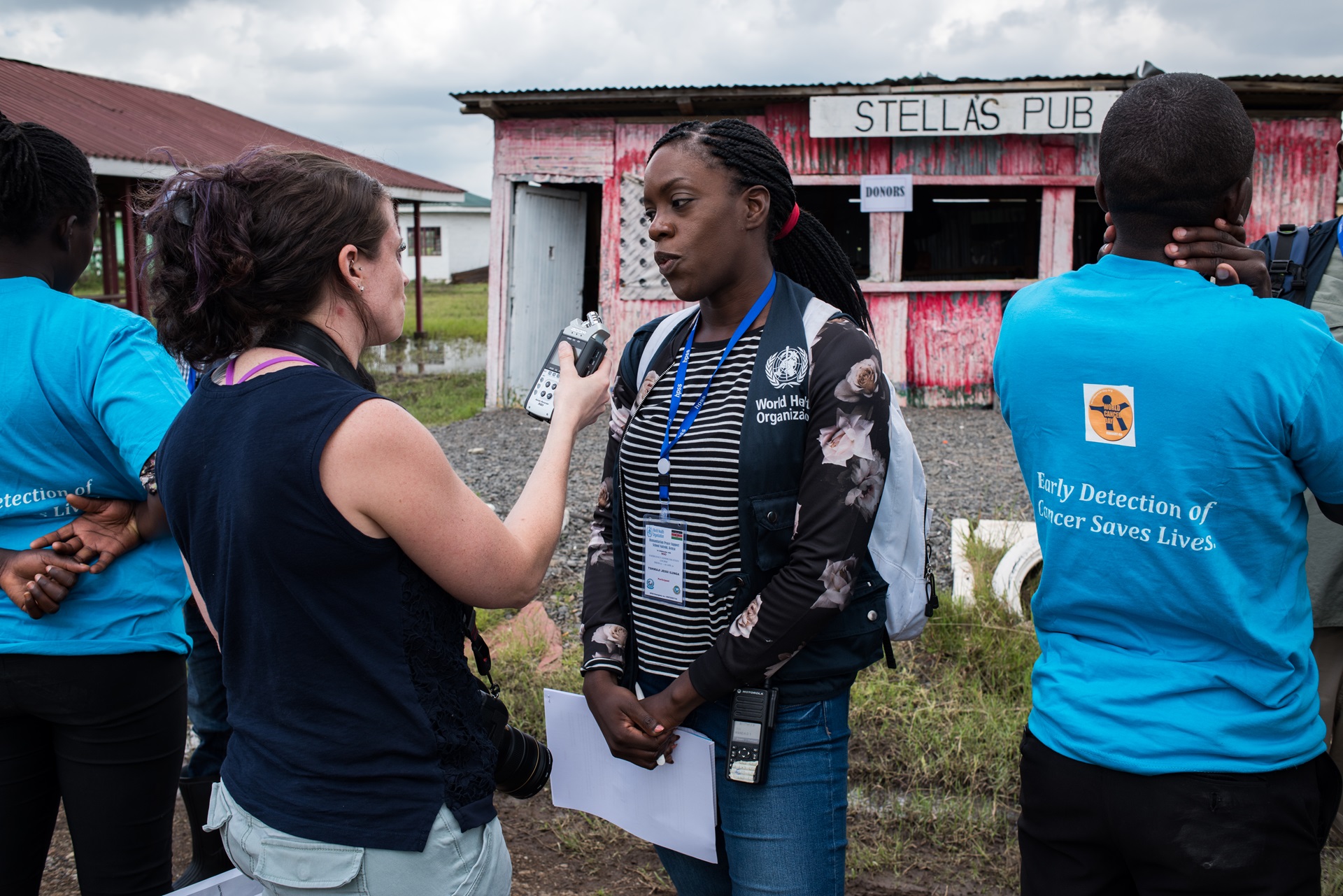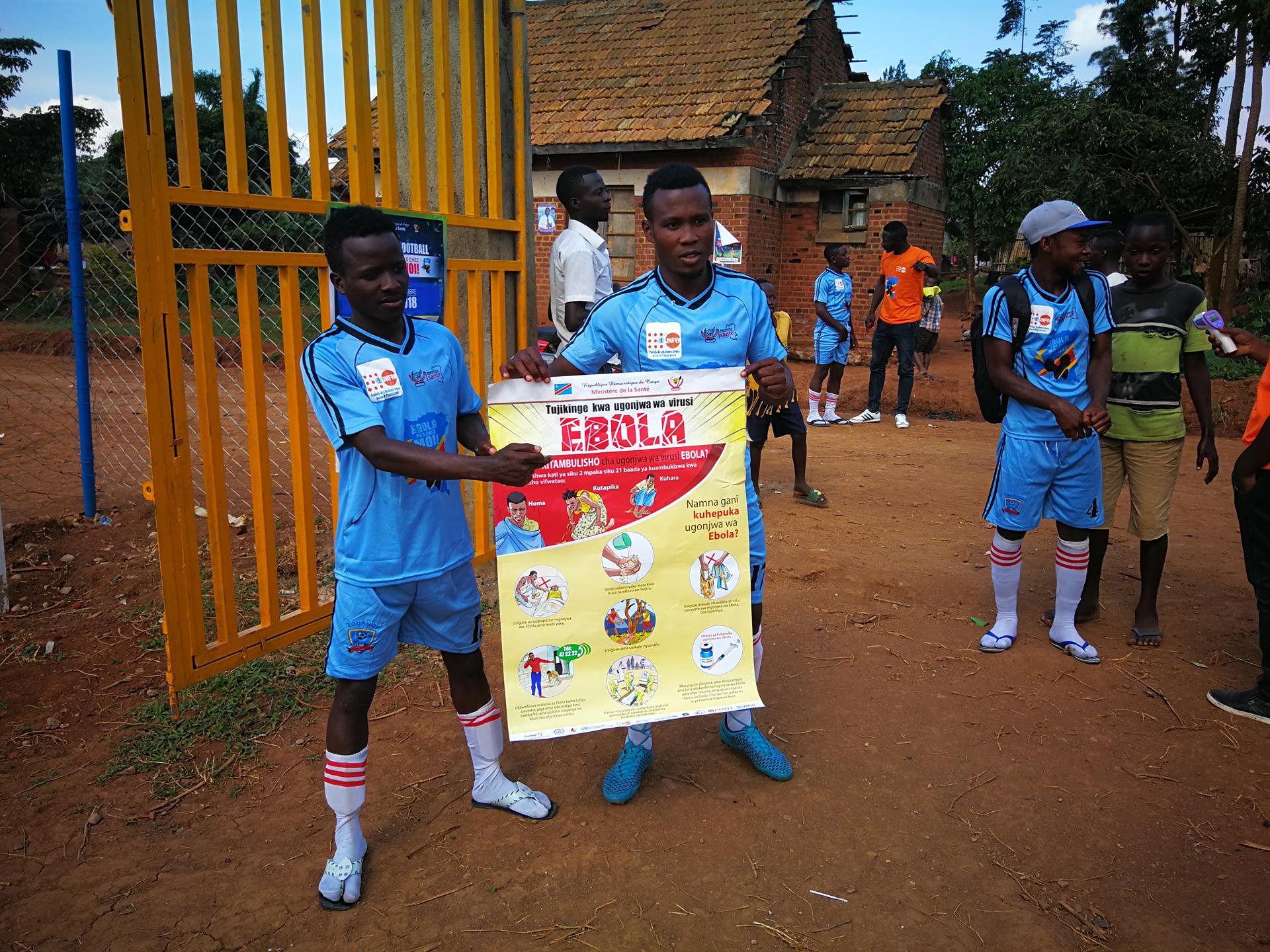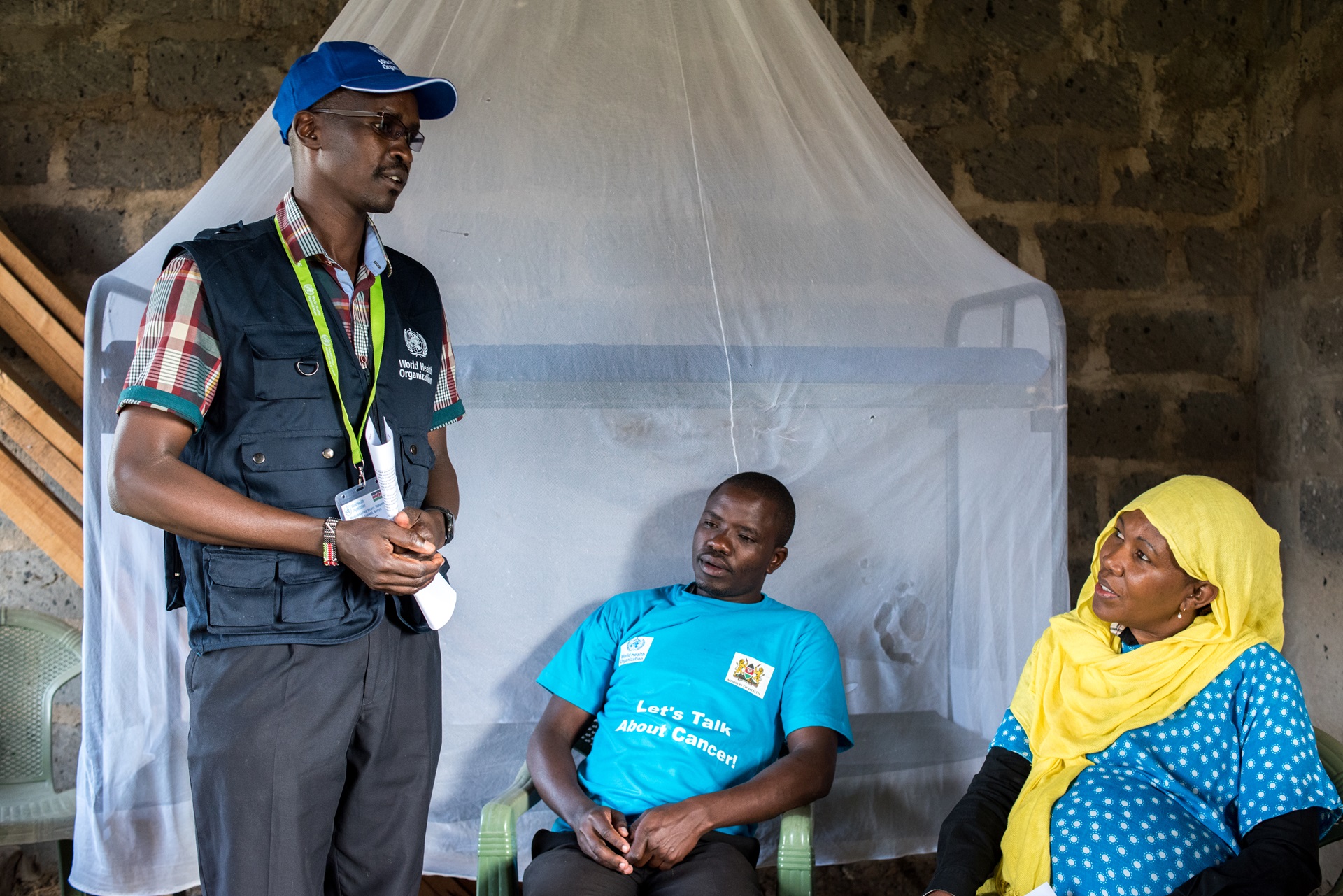From ECN training to Ebola response: An interview with Jessica Ilunga

Jessica Ilunga, a special adviser to the Minister of Health and communications officer in the Democratic Republic of the Congo, recently participated in WHO’s Emergency Communications Network training. The training pairs WHO communications officers with their counterparts in ministries of health to prepare them for responding to emergencies and crises.
I was trained at the Emergency Communications Network training in Nairobi, Kenya, in April 2018. It was one of the best experiences I had. Until then, I had never experienced a training like it. Two weeks after the training, my country declared its ninth outbreak of Ebola virus disease.

The Emergency Communications Network training simulates a situation involving a public health concern and trains communications officers from WHO and ministries of health how to work together to communicate life-saving messages. In this part of the simulation exercise, communications officers speak with the matriarch of a local village about disease prevention measures.
What made this training unique is, it simulated a real health emergency with all the dimensions of a crisis. It simulates all of the challenges – time pressures, stress, physical and mental exhaustion, community resistance, hostility, negotiation – that you will experience in a real-life emergency.
In responding to Ebola in my country, one of the most memorable communications action we took involved the youth in Equateur province.
The population in DRC is young. The youth can be your strongest ally or your biggest blockers. Therefore, it was important to include local young people in the Ebola response as champions of positive prevention messages for the rest of the youth.

Recognizing youth as a powerful ally can be an important component in outbreak responses. In this case, youth football teams were invited to help DRC deliver important messages related to Ebola. Various teams from Beni gather to support these efforts.
When I arrived in Beni, I quickly noticed that young men loved football. We decided to organize a football competition with local football teams to get the support of the youth. All the teams received new jerseys with Ebola messages and new training equipment.

A local football player takes part in a demonstration at a temperature check station before the start of a match.
We placed handwashing stations and temperature checks at the entrance of every stadium. Before each game, players would take pictures of themselves washing their hands and having their temperature checked to show the importance of respecting health measures. They also recorded messages for local radios.

Youth from one of Beni’s local football teams begin sharing Ebola messaging in their communities.
It was such a fun activity to organize. Most importantly, it helped Ebola responders connect with the local youth and earn their trust.
The ECN training was invaluable in helping me understand how to create a communications outcome and how to analyze our audiences for the various messages and activities. We have learned very quickly that what we tell health care workers and what we tell the families of Ebola patients may have the same objective – to avoid becoming ill, for example – but the messages must be written and delivered in ways that each of these groups can hear and accept.

Learning how to communicate so that families and communities can take the correct actions to protect their health comes through building trust, communicating clearly, and being credible. All of these attributes are core learning components in the ECN training.
If we don’t communicate properly with families, they will not trust us to help their sick and dying. If we don’t respect their rituals, they will not trust us to bury their dead. So, messaging is very important and speaking plainly, but respectfully is important.

MOH communications officer, Jessica Ilunga, joins students in a march supporting Ebola response activities. Ms Ilunga participated in WHO’s Emergency Communications Network training in Nairobi in April 2018.
I am very proud to be able to use my skills and the training I received to serve my country during these outbreaks of Ebola virus disease.
